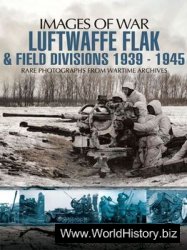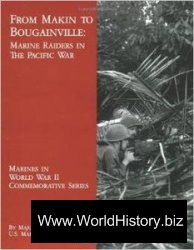The early republic had a significant debate between two of its most prominent statesmen on the future of manufacturing and the prospects for industry in the nation. Thomas Jefferson and Alexander Hamilton took opposing views and saw a different outcome if the United States introduced industrial enterprises. Their only area of agreement was that manufacturing would not occur unless the federal government and local leaders lent support and encouragement. While their difference of opinion was real, it should be remembered that neither Jefferson nor Hamilton understood completely the transformation of Western economies that was occurring right before their eyes. They did not have the luxury of looking back in time at the British industrial model since it had only gained momentum in their lifetime.
Thomas Jefferson had traveled in Great Britain, and he objected to what he had observed in the early stages of its industrial growth: poverty, the filthy and overcrowded cities, and a working class with few rights and no political voice. Jefferson seriously questioned whether such a society could foster democratic principles. It should be emphasized that Jefferson was a firm believer in science and technology. He experimented frequently at Monticello, his Virginia estate, and even attempted to supplement his income with the manufacture and selling of nails. Thus, he did encourage the continued use of home-based manufacturing, similar to the American enterprises in the colonial period. However, he remained suspicious of larger-scale factories because he believed such enterprises tended to dominate the cities and subject the working classes to corrupt influences. Jefferson also observed that because Europe had cultivated all of its available land, it seemed only natural that the Europeans had turned to manufacturing out of necessity rather than choice as the only alternative livelihood for its people. Jefferson opined that the United States’ situation was markedly different because of the infinite amount of land stretching west. This abundant land was ripe for agricultural development, and it would take nearly the entire population to subdue and improve it for the benefit of the nation at large. He favored a country populated by landowners and farmers, persons who tilled the soil and were favored by God. He considered them proud, highly valued citizens who had exhibited the admirable traits of vigor, independence, and liberty. Jefferson saw those same cultivators as honest and not easily corruptible, whereas those involved in manufacturing depended on the capriciousness of the buying public and acted in concert with blind ambition, a characteristic that he claimed led to subservience and the abandonment of virtue. His creed was that the land, not the workshop, was the key to the value of work. Agricultural, not mercantile, interests should dominate the nation’s economic life. A man who had unlimited freedom of action should live on his land and plan and manage it without any outside or governmental influence. If, for some reason, the available land had been cultivated over time and the nation had a surplus of farmers, the excess people should turn their economic pursuits to the sea rather than manufacturing. A national government, while essential, must not usurp the authority and power of the states, political entities that could best safeguard his vision of democracy.3
Alexander Hamilton had a distinctly different perspective. He had an urban background and believed that the federal government should manage the country’s economy as a whole. Did Hamilton have an inkling that something important (we now know it was the Industrial Revolution) was beginning, even in its early stages during his lifetime? It seems he possessed just such an intuition and appeared willing to embrace and encourage it. He rejected Jefferson’s purely democratic emphasis, stating that such an approach had the potential to break up the union, an unacceptable outcome that only a strong national government could prevent. He saw the U. S. and British industrial interests as intertwined, but if Great Britain failed to see the value of such an economic alliance, America should warm to the French. Yet he also viewed the United States as a potential rival to Great Britain. Immediately upon becoming Washington’s Secretary of the Treasury, Hamilton became a charter member of the New York Manufacturing Society. He also encouraged his Assistant Secretary of the Treasury, Tench Coxe, to obtain British industrial techniques by luring textile managers to the United States to teach their secrets, a venture that proved successful over time despite a Parliamentary act levying a fine of 500 pounds and one year in prison for any British subject committing such a transgression. On one occasion, a man was sent to Great Britain to snoop around textile mills and make models of machinery to smuggle back to the United States, and on another Coxe gave a British subject a U. S. patent for a flax mill that would use Arkwright’s design.4
Hamilton conducted exhaustive research on the state of U. S. manufacturing enterprises. He surveyed a number of revenue collectors and early U. S. cotton, wool, and other industries in the Northeast to obtain information on the volume of production and prices and quality of goods. He even set up a trade fair in a committee room of the House of Representatives with samples of the wares he had gathered in an effort to sway members of Congress to see the utility of federal support for manufacturing. In 1791 Hamilton published his Report on the Subject of Manufacturers and submitted it to Congress. In this work, Hamilton recommended that the federal government take an active role in the promotion of manufacturing and that it should enact import tariffs to protect native goods. Hamilton’s work aimed to rebut the widely-held Jeffersonian view that agriculture and trade were the heart and soul of the nation’s economy as they alone provided subsistence to the people. Hamilton conceded that while these pursuits were indeed important, manufacturing would provide a positive impact on American society and that the productivity and revenue of the nation from such enterprises would be higher than without such a capacity. He argued that the nation possessed the capacity to accumulate enough capital for development across the country. He also wrote that factories would surpass local handicraft production because of the division and specialization of labor. His report implied that factory-produced goods would find markets abroad and further stimulate the economy. Furthermore, Hamilton believed that his program offered employment to segments of society not otherwise engaged in business practices and emphasized that manufacturing served as a magnet for immigrants, a necessary additional labor component of any economy. In his opinion, manufacturing also encouraged the development of a variety of talents, and the resulting increased production would ultimately enlarge the market for agricultural products. Members of Congress, many of them landowners themselves, ignored Hamilton’s report, believing his ideas were too far-fetched for them to embrace.5
In the same year as Hamilton’s report to Congress, the New Jersey state legislature created the Society for Establishing Useful Manufactures (Hamilton himself was one of the sponsors). This organization had the authority to raise $1 million in shares and had the mission to support the manufacture of a wide range of items. The Society showed early promise and had visible support. It was not required to pay local taxes and was exempted for a decade from paying state taxes. The state granted the society a large parcel of land near present day Paterson, New Jersey. Major Pierre-Charles EEnfant, the individual who planned the nation’s capital, was hired to lay out the town and its mills. The state made an initial investment of $10,000, and many local officials and citizens soon boosted the total to $100,000. The society did not realize its vision. In truth, none of the individuals engaged in the enterprise had any manufacturing experience, much of the initial investment was spent on construction costs, and the early articles produced could not compete with those from Great Britain. Within five years the endeavor failed, although the Society remained in existence until after World War II when it was purchased by the city of Paterson. It had survived such a long time by selling land for factory locations and because it controlled the important sources of water in the area.6
Thus, the industrial opportunities that arose in America in the late 18th century failed to gain momentum. Even enterprises such as the Slater mill projects and the Society for Establishing Useful Manufactures had only temporary success because the nation seemed content to rely on agricultural exports to finance the purchase of European manufactured goods. Nonetheless, Hamilton’s vision eventually was validated although in the near term the prejudice for agriculture remained strong; the country lacked both infrastructure, and an adequate supply of skilled labor and persons with sufficient capital to invest shied away from the risk. However, the trend toward industrial development in the long term was unstoppable. The transition occurred, albeit slowly, for several reasons. First, a few manufacturing enterprises such as cotton goods, arms making, and flour milling emerged to match British competitors. Second, proponents of manufacturing argued that sufficient labor existed in the form of women and children and that men could remain employed on the farm. Finally, the shortage of capital for investment could be supplied by the state through the extension of credit and enhanced by a strong currency. These developments supported Hamilton’s viewpoint. Even Thomas Jefferson, after witnessing the stress that the War of 1812 had placed on the country, conceded before his death in 1826 that manufacturing was a worthy partner with agriculture and trade to ensure the health of the nation’s economy and maintenance of its liberty.




 World History
World History




![Black Thursday [Illustrated Edition]](https://www.worldhistory.biz/uploads/posts/2015-05/1432470149_1431513568_003514b1_medium.jpeg)




